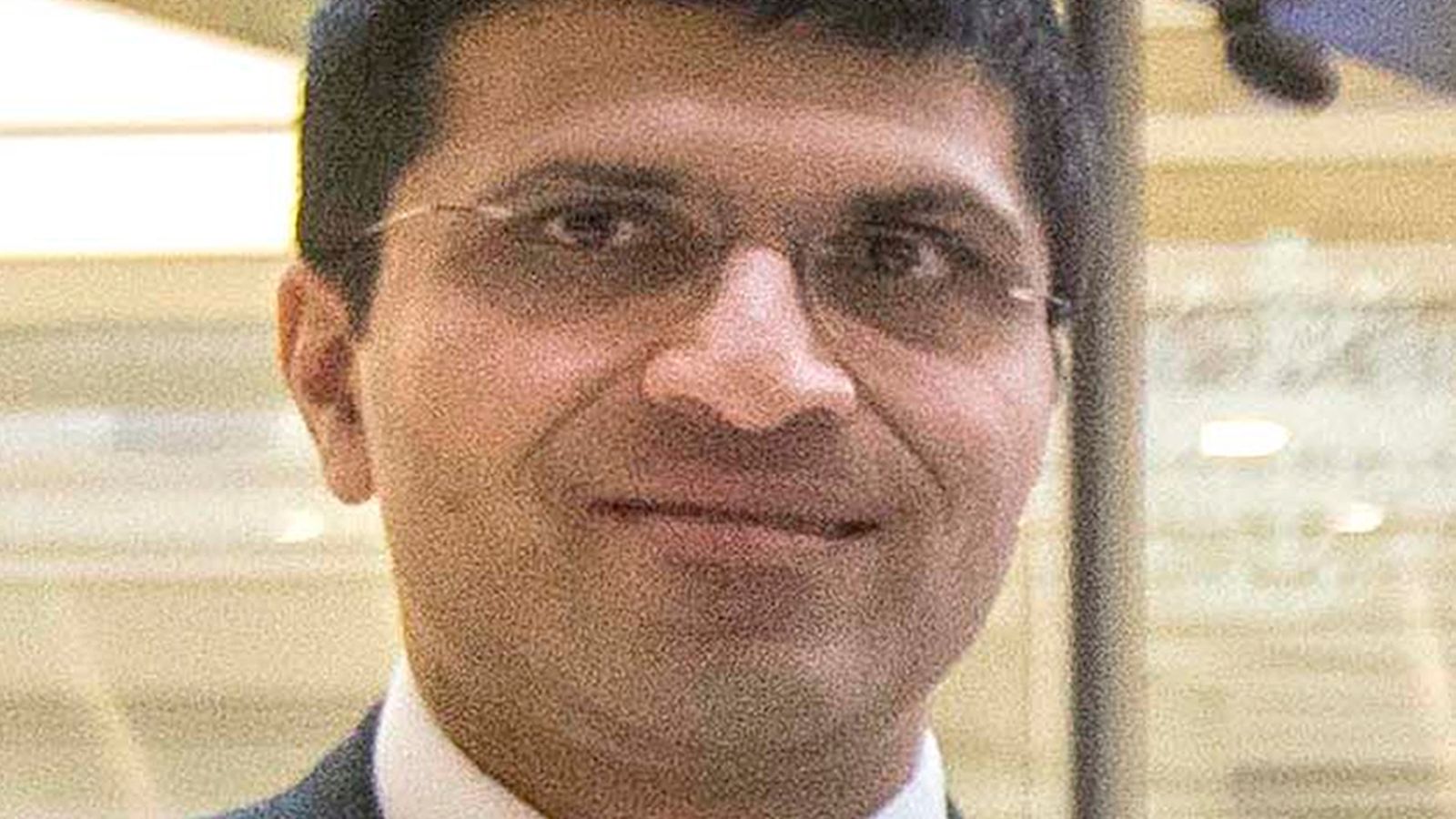The head of the UK’s leading financial regulator has launched a stout defence of its actions around the collapsed supply chain finance provider Greensill Capital.
Nikhil Rathi, chief executive of the Financial Conduct Authority, said the regulator had launched its investigation into Greensill – which was confirmed publicly on Tuesday this week – more than a month ago and had not done so just because the Treasury select committee had launched one of its own.
He also defended the FCA’s monitoring of the business in the face of accusations that it had taken its eye off the ball.
Please use Chrome browser for a more accessible video player
Mr Rathi, who was answering questions from the committee, said the fact that an investigation was ongoing did not mean the FCA had actually uncovered any evidence of wrongdoing. He said it was a complex investigation over multiple jurisdictions and he could not give a “cast iron” forecast of how long the investigations could take.
Mel Stride, the committee chairman, asked whether the FCA had concerned itself in early 2020 with potential defaults by Greensill’s customers as the pandemic took hold.
The FCA chief executive, who only joined in October last year, stressed he had not been at the regulator at that time but noted the concerns of the FCA then were how it could support “system wide interventions” and preventing the failure of institutions that would have the biggest impact on consumers.
His implication was that Greensill Capital did not fall into that category.
He said the FCA had opened its investigation into the failure of the company in March this year but there had been “detailed preparatory thinking” going on in January and February this year.
Rushanara Ali, Labour MP for Bethnal Green and Bow, highlighted other previous scandals such as the Neil Woodford affair and the London Capital & Finance scandal, and said the FCA often appeared to be “playing catch-up”. She asked whether the FCA would be investigating the matter were it not for the Treasury select committee’s interest.
Mr Rathi pointed out an investigation had already been underway when the committee launched its inquiry.
Charles Randell, chairman of the FCA, said the regulator did not necessarily launch investigations where there was evidence of wrongdoing. He said he accepted its procedures could be frustrating to politicians but insisted the FCA took no longer over its investigations that the SEC in the US or the main securities regulator in Australia.
Please use Chrome browser for a more accessible video player
Asked whether he had any regrets about Greensill and the FCA’s monitoring of it, Mr Rathi said there were always things that could be done differently or rigorously with the benefits of hindsight. He said the FCA’s focus had also been directed towards mitigating the impact of the pandemic.
Mr Randell was later asked a similar question by the Labour MP Siobhain McDonagh. The Labour MP for Mitcham and Morden, who on Tuesday had directly asked Greensill’s founder and former chief executive Lex Greensill if he was a fraudster, tried to get Mr Randell to say whether he would have done things differently in 2018 with the benefit of hindsight. Mr Randell replied that, when he judged his past actions, he tried to do so on the basis of what he had known at the time.
MPs on the committee failed to draw Mr Rathi into details on the former prime minister David Cameron’s relationship with Greensill Capital or his lobbying on its behalf.
Please use Chrome browser for a more accessible video player
Ms Ali, who at one point said “Grenfell” when she meant to say “Greensill”, asked whether Mr Cameron’s connection had made Greensill Capital “off-limits” to the regulator.
Mr Rathi replied: “I have seen no evidence to suggest anything to imply that…in the records I have seen.”
Ms Ali tried again and asked whether the FCA could be “completely independent” in this investigation given the Treasury’s involvement and the involvement of leading politicians like Mr Cameron and the chancellor, Rishi Sunak, whom he lobbied.
Pointing out that the FCA had recently brought a case against a taxpayer-owned bank, Mr Rathi insisted it would be.
Some of the early questioning focused on the rise of the so-called ‘shadow banking’ and non-bank finance sectors.
Please use Chrome browser for a more accessible video player
Another committee member, Felicity Buchan, asked whether it was possible to say if there were any lessons from the Greensill episode.
Mr Rathi said that, as a general point around non-bank finance, the UK needed to have a regulatory regime that could obtain more information from such organisations.
He added: “The Treasury, for example, is looking at a significant piece of legislation…which enables firms to act through UK markets without authorising the supervisor.”
This was relevant to the Greensill investigation because one arm of Greensill had piggybacked off US-based but UK-licenced Mirabella Advisers under ‘appointed representative’ regulation dating back to the 1980s.
Mr Rathi added: “It’s evolved over time, I certainly don’t think it would be proportionate for the FCA to supervise a sole trader that’s selling insurance in their local market, or a self-employed mortgage broker.
Please use Chrome browser for a more accessible video player
“[But] it’s moved into much more complex areas, and it’s quite liberal in terms of the range of activities an appointed representative can undertake.
“That feels to me like we need to be looking much more closely at the systems of control that the principle has in place and potentially also placing some restrictions on the scale of business that can be undertaken through this mechanism.”
Mr Rathi said there were specific areas such as money market funds where there was a significant focus and where the FCA was working with the Bank of England and other watchdogs to set up a global regulatory framework. He said the recent collapse of the US hedge fund Archegos Capital had also highlighted this issue.
But Mr Rathi, who joined the FCA from the London Stock Exchange, insisted he saw no need to regulate supply chain finance as usually this field generally involved straightforward financial transactions between counterparties – although in the case of Greensill, where there was “a capital markets nexus”, there needed to be more attention.
Ms Buchan, Conservative MP for Kensington, asked whether more international co-operation between regulators was needed so that an organisation like Greensill Capital could be looked at “more holistically” and Mr Rathi agreed.
He went on: “We’ve been very proactive in signing international memoranda of understanding.”
Asked whether all commercial lending needed to be looked at more closely by the regulator, Mr Rathi said commercial lending between large wholesale counterparties had tended to fall outside the FCA’s remit although it concerned itself – along with HMRC and a “couple of other institutions” – to look at money-laundering issues.
He said a “regulatory nexus” existed when bodies like Greensill Capital interacted with the capital markets. He highlighted the different regulations in other parts of the world, including those covering Greensill’s German banking arm and its Australian parent company, as an example of how no one single regulator would have had complete oversight of the business. Mr Rathi said there was scope for the regulator to gain further oversight of such businesses but said he felt it would be a step too far to look closely at all commercial lending.
Dame Angela Eagle asked whether, had Greensill survived for longer and become larger, it might have posed a systemic risk.
Mr Rathi replied that there was “some work to do” in terms of the shadow banking sector and said there had been a “big shift” to non-bank finance – partly due to ultra-low interest rates driving investors for a search for yield and also due to the changing nature of asset ownership and the rise of organisations such as private family offices and other investors different from traditional asset managers.
Mr Rathi refused to be drawn on the issue of ‘prospective receivables’ – where Greensill issued funding against potential future invoices – as he said this would be a matter for the FCA’s investigation.
Asked by Dame Angela, Labour MP for Wallasey, whether he was surprised at Greensill Capital’s failure, he said “there are elements there that we will want to look at”, but declined to go into details. He said it had been no surprise to see parts of the financial markets under stress at that time given the broader economic circumstances from March 2020 onwards.
Complaining that fraud had effectively been “decriminalised”, Dame Angela asked: “The FCA always seems to arrive after a collapse has happened… when everyone has lost their money. Can’t you be more reactive?”
Mr Rathi refused to be drawn on specific allegations being thrown towards Mr Greensill but said only 1% of police resources were addressed to investigating potential fraud.
Asked by Julia Marson whether the FCA was “over-stretched”, Mr Rathi admitted the regulator had a “wide remit”, which he said it did best to fulfil.
Ms Marson, Conservative MP for Hertford and Stortford, asked about progress on the FCA’s transformation programme.
He said there had been significant “leadership change” and new skills and capabilities were being brought in. He said training in some areas, such as financial accounting, had also been stepped up while the FCA was also using cloud technology and data analytics more widely. He said the amount of data the regulator was having to process, including WhatsApp messages, had increased by 200%.






















